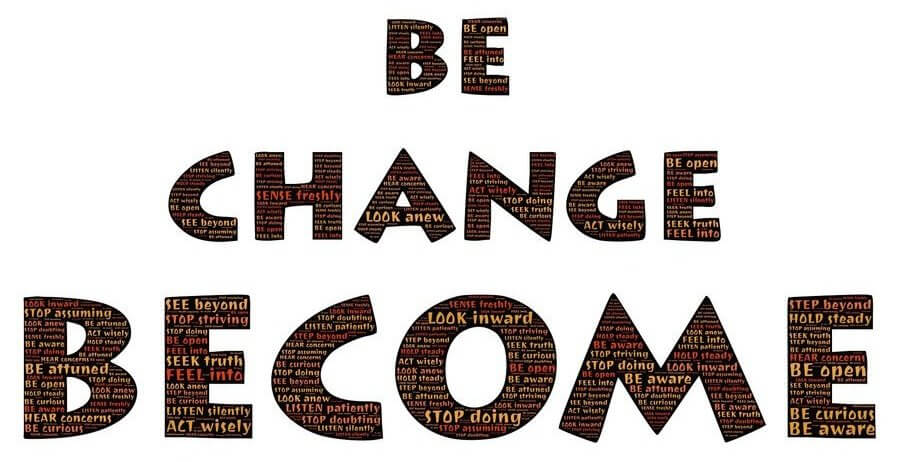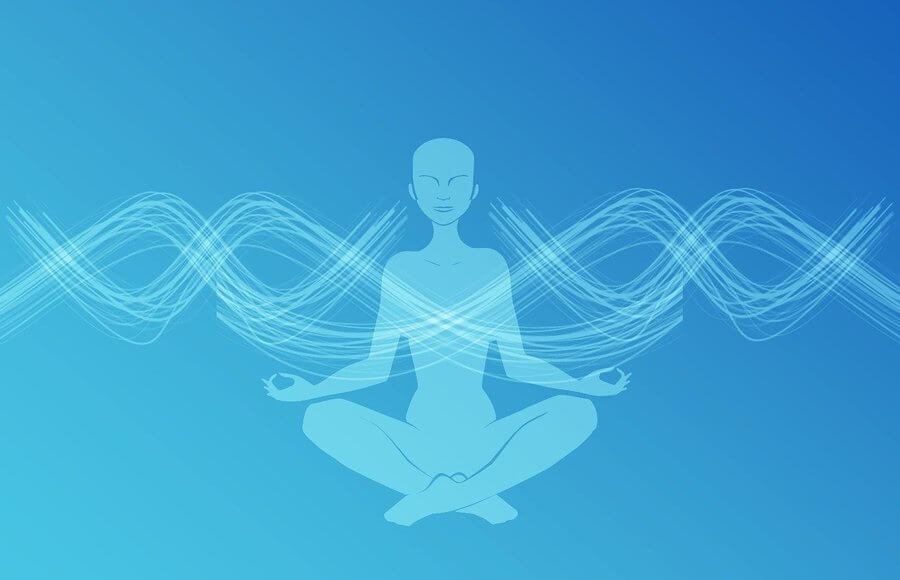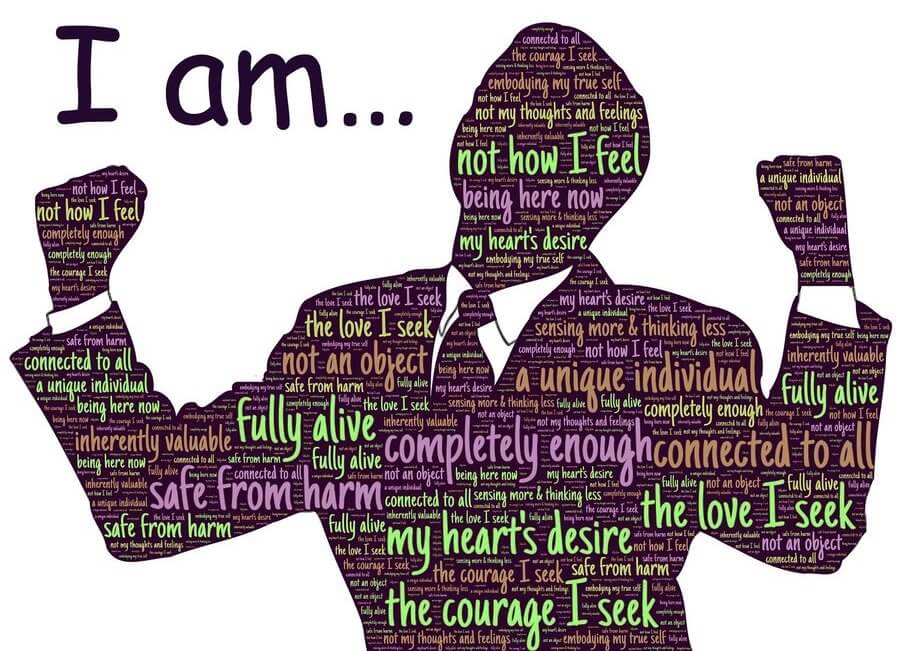Are you on a journey of self-awareness to uncover your true identity? Are you trying to understand who you are and how to build the life and career of your dreams? We all have an innate desire to understand and know ourselves, but how often do we take the time to reflect on who we are?
We’re in constant evolution and growth. So, it’s important that our understanding of ourselves keeps up with these changes. By becoming more self-aware, we can determine what matters in life and create our own unique path.
Self-awareness is the foundation of personal growth and development. It’s the process of understanding yourself, your thoughts, emotions, and behaviors, and how they impact your life. It allows you to understand who you are and what you stand for.
Awareness gives you a clearer understanding of your values, beliefs, strengths, and weaknesses. You become better at making decisions that align with your true self.
The journey to self-awareness is a lifelong process. It involves constant learning, self-reflection, and growth. It requires us to be open-minded and willing to explore our inner selves and face our fears.
It helps us to adapt to change and navigate challenges with greater ease. By understanding ourselves, we can pursue a life that brings us fulfillment.
In this blog post, we will explore the steps involved in becoming more self-aware and how it can benefit you to live a more empowered life.
Types of self-awareness
While there may be varying perspectives on the different types of self-awareness, my primary focus for this article is on the importance of becoming aware of one’s own personal experience.
This involves taking the time to look inward and understand your thoughts, emotions, and behaviors, and how they impact your life and those around you, as stated before.
By embarking on the journey to self-awareness, you can gain valuable insights that will help you in your personal development path.
The Benefits of Being Self-Aware in Daily Life and for the Long Term
Self-awareness is a valuable tool that can positively impact our daily lives and long-term success. By understanding our thoughts, emotions, and behaviors, we can make informed decisions that align with our values and goals, leading to better choices and outcomes in the long term.
In daily life, self-awareness allows us to better manage stress and interpersonal relationships. When we are aware of our emotions and reactions, we can respond to challenges more productively and constructively. Being self-aware can also help us understand and empathize with others better, leading to stronger relationships and improved communication.
In addition, self-awareness enables us to recognize patterns in our behavior that may be holding us back from personal growth.
The benefits of awareness extend beyond daily life and into long-term success, leading to personal development over time. When we are aware of our patterns and tendencies, we can actively work to improve and become the best version of ourselves.
When you know yourself well, you can identify what you need to work on and make meaningful changes to reach your full potential.

How to Know if You Lack Self-Awareness
Self-awareness is a crucial trait to possess, yet it can be difficult to know if you lack it. Here are some signs that may indicate you lack self-awareness:
- You tend to blame others for your mistakes and shortcomings instead of taking responsibility for them.
- You struggle to understand why you feel a certain way or react in a certain manner to situations.
- You are defensive and get easily offended when someone provides you with feedback or constructive criticism.
- You struggle to see things from other people’s perspectives and tend to be narrow-minded.
- You tend to repeat the same mistakes and patterns in relationships and other areas of life.
- You struggle to identify your strengths and weaknesses.
It’s important to remember that being self-aware doesn’t mean you have to be perfect, but it does mean being open to self-improvement. So, if you’re unsure about your own level of self-awareness, take some time to evaluate your actions and figure out what changes you can make in your life to improve this crucial trait.
By becoming more self-aware, you can become a better communicator, build stronger relationships, and achieve your goals with greater success.
How do I start an awareness journey?
Embarking on a self-awareness journey can be a transformative experience. It requires honesty, vulnerability, a willingness to learn, an open mind, curiosity, and a commitment to growth.
Here are some steps to help you get started:
- Make a commitment: Acknowledge the importance of self-awareness and commit to making it a priority in your life.
- Set aside time for reflection: Carve out some time each day or week to reflect on your thoughts, feelings, and actions. Use this time to journal, meditate, or simply sit in silence and observe your inner experience.
- Get feedback: Seek honest feedback from people you trust. This could be a friend, family member, or mentor who knows you well and can provide constructive criticism.
- Identify your values: Take some time to reflect on your values and what matters most to you. Use this as a foundation for making decisions and setting goals.
- Challenge yourself: Try new things and step out of your comfort zone. This can help you discover new aspects of yourself and build self-confidence.
Remember, self-awareness is a lifelong journey, and it takes time and effort to develop. Be patient with yourself and stay committed to the process.

Taking Steps Towards Self-Awareness & Embracing Your True Identity
Have you ever stopped to think about who you really are?
It’s easy to get lost in the noise of the world around us, especially when we’re constantly bombarded with messages about what we should look like, what we should do, and who we should be.
But taking the time to really explore your true identity and cultivate self-awareness can be incredibly rewarding. It can help you understand your values, your motivations, and your purpose in life.
The first step is to acknowledge that you want to improve your self-awareness and become more in tune with your thoughts, feelings, and behaviors. From there, you can begin to take practical steps towards developing your self-awareness.
One way to start is by writing down your thoughts and emotions regularly. This can help you identify patterns in your behavior and emotions, as well as understand the root causes of your feelings.
Additionally, meditation or mindfulness practices can help develop self-awareness by allowing you to become more present and aware of your thoughts and feelings in the moment.
Here are 6 more steps that can help you become more self-aware:
- Self-reflection:
Self-reflection involves taking the time to think about your experiences, thoughts, and emotions, and analyzing how they have shaped you as a person.It allows you to gain a deeper understanding of yourself, your motivations, and identify your values and beliefs, helping you to identify patterns and behaviors that may be holding you back or causing you to repeat past mistakes.
By making this a regular practice, you can continue to grow and evolve as a person, gaining greater self-awareness and insight into your true identity.
- Accept yourself:
Self-acceptance involves acknowledging and embracing your strengths, weaknesses, flaws, and imperfections.When you accept yourself, you are no longer seeking validation or approval from others, but rather, you are content with who you are. This self-acceptance can lead to increased confidence, self-esteem, and a greater sense of inner peace.
It also involves practicing self-compassion, being kind to yourself, and recognizing that nobody is perfect.
- Overcome fear of judgment:
Overcoming the fear of judgment is an important step towards self-awareness and embracing your true identity. It’s important to remember that other people’s opinions do not define us, and it’s essential to be true to ourselves and our values, even if it means going against the opinions of others.To overcome this fear focus on self-acceptance and self-love. It can also be helpful to surround yourself with supportive and accepting people who encourage and uplift you. Remember, the only person who needs to accept you is yourself.
- Develop your unique qualities:
Each person has their own set of talents, skills, and interests that make them who they are. By taking the time to explore and cultivate these unique qualities, you can gain a deeper understanding of yourself and what brings you joy and fulfillment.It is important to remember that what sets you apart from others is what makes you special and valuable. Embracing your individuality and owning your unique qualities can help you to build confidence, express yourself authentically, and lead a more fulfilling life.
- Honest Feedback:
It can be difficult to hear constructive criticism or negative feedback, but it’s important to remember that feedback can help you identify areas where you can improve.Seeking out honest feedback from trusted individuals can help you gain a better understanding of your strengths and weaknesses, and provide insights into how others perceive you.
When receiving feedback, it’s important to remain open-minded, listen actively, and thank the person for their honesty. Even if the feedback is difficult to hear, it can ultimately help you become more self-aware and grow as a person.
- Creating a vision for your life:
Creating a vision helps you identify what truly matters to you and what you want to achieve in life. This process involves reflecting on your values, goals, and aspirations, and then using this information to create a clear and concise picture of your ideal future.By setting goals and creating a roadmap for your life, you can focus your efforts and energy towards achieving what is truly important to you, and move forward with purpose and intention.
The self-awareness path is a journey, not a destination, and it takes courage to face ourselves honestly. But when we embrace our true identity, we find a sense of peace and purpose that can’t be found anywhere else.

Practical Examples of Awareness in Daily Life
Have you ever found yourself in a situation where your emotions take over and you react without thinking? We’ve all been there. It’s in moments like these when self-awareness can make a big difference. Here are some practical examples of self-awareness in daily life:
- Paying attention to your thoughts and emotions: When you start to notice your thoughts and emotions, you become more aware of your reactions and behaviors. For example, if you notice that you get angry or anxious when someone cancels plans, you can start to work on managing those emotions and finding healthier ways to cope.
- Recognizing your triggers: We all have things that trigger negative emotions, such as stress, anxiety, or anger. When you’re self-aware, you can identify those triggers and take steps to avoid or manage them. For example, if you know that a certain topic of conversation tends to make you upset, you can steer clear of it or prepare yourself to handle it more calmly.
- Understanding your values and beliefs: Self-awareness can help you identify your core values and beliefs, which can guide your decision-making and behavior. For example, if you value honesty, you might be more likely to speak up when you see something that doesn’t feel right.
So, next time you catch yourself reacting impulsively or making assumptions, take a step back and practice some self-awareness.
Related article: Self-Awareness Made Easy: 3 Tips for Daily Practice
Obstacles that may show up
Have you ever had that moment where you thought you knew yourself completely, but then something happened that made you question everything you thought you knew about yourself?
This is where self-awareness comes into play. As much as we like to believe we have a deep understanding of ourselves, sometimes our own biases and blind spots can get in the way.
Obstacles to self-awareness can come in many forms, and it’s essential to recognize them to overcome them.
One of the most common obstacles is denial, where we refuse to see our flaws and weaknesses. Fear is another common obstacle that can prevent us from being self-aware. Fear of being vulnerable or judged can lead to a lack of introspection and self-reflection.
Another obstacle to self-awareness is a lack of self-compassion. People who are overly critical of themselves may find it challenging to acknowledge their shortcomings. Perfectionism is another obstacle, as when we strive for perfection often become preoccupied with our flaws and mistakes.
Finally, distractions can also prevent us from being self-aware. Today’s fast-paced world and constant stimulation can make it challenging to find quiet time for introspection and reflection.
To overcome these obstacles, it’s important to recognize them and make a conscious effort to address them. Practicing self-compassion, setting aside time for reflection, and seeking out feedback from others can all help in the journey towards greater self-awareness.
Related article: The Role of Self-Awareness in Overcoming Limiting Beliefs and Self-Doubt
Maintaining Self-Awareness
Maintaining self-awareness is the key to unlocking your fullest potential. When we are in tune with our thoughts, feelings, and actions, we become better equipped to navigate the complexities of life.
But let’s face it- maintaining self-awareness can be tricky. It’s easy to get caught up in the hustle and bustle of everyday life, leaving little room for introspection.
To maintain self-awareness, carve out time each day for reflection. First, make self-reflection a regular practice. You can journal, meditate, or simply take a few moments each day to think about your thoughts, emotions, and behaviors. This will help you stay attuned to your internal experiences and identify any changes or areas for growth.
Second, remember that self-awareness is a journey, and it’s okay to make mistakes and have flaws. Rather than judging yourself harshly, practice self-compassion and accept yourself as you are.
Third, remember that other people’s opinions do not define you. Work on building your confidence and trusting in your own identity and values.
Fourth, continue to develop your unique qualities and strengths. This will help you stay true to yourself and maintain a strong sense of identity. Focus on your strengths and continue to develop your skills and abilities.
Finally, create a vision for your life and work towards your goals. This will give you direction and purpose, and help you stay focused on what’s important to you. Make sure to periodically check in with yourself and make any necessary adjustments to your vision and goals.
By incorporating these practices into your daily life, you can maintain self-awareness and continue to embrace your true identity. Remember, self-awareness is a lifelong journey, and it’s never too late to start.

In Conclusion
In conclusion, embarking on a journey towards self-awareness is crucial for personal and professional growth. Though it takes time, effort, and courage to become aware of who we are and take steps towards embracing our true identity, the rewards can be life-changing.
Making a conscious effort to increase self-awareness will bring an increased understanding of your strengths and weaknesses, greater clarity of ideas and objectives, and the ability to make quick decisions based on thorough understanding. It will help you identify areas for improvement and provide an opportunity for self-development.
It’s important to remember that self-awareness requires consistent effort and practice. By taking steps such as practicing self-reflection, accepting yourself, developing your unique qualities, and creating a vision for your life, you can continue to deepen your self-awareness and embrace your true identity.
With patience, self-compassion, and a commitment to growth, you can live a more fulfilling life.
So I ask you: what techniques do you use to stay aware? What sort of personal growth traits have come to you while exploring deeper into your abilities? Let me know in the comments below!


0 Comments